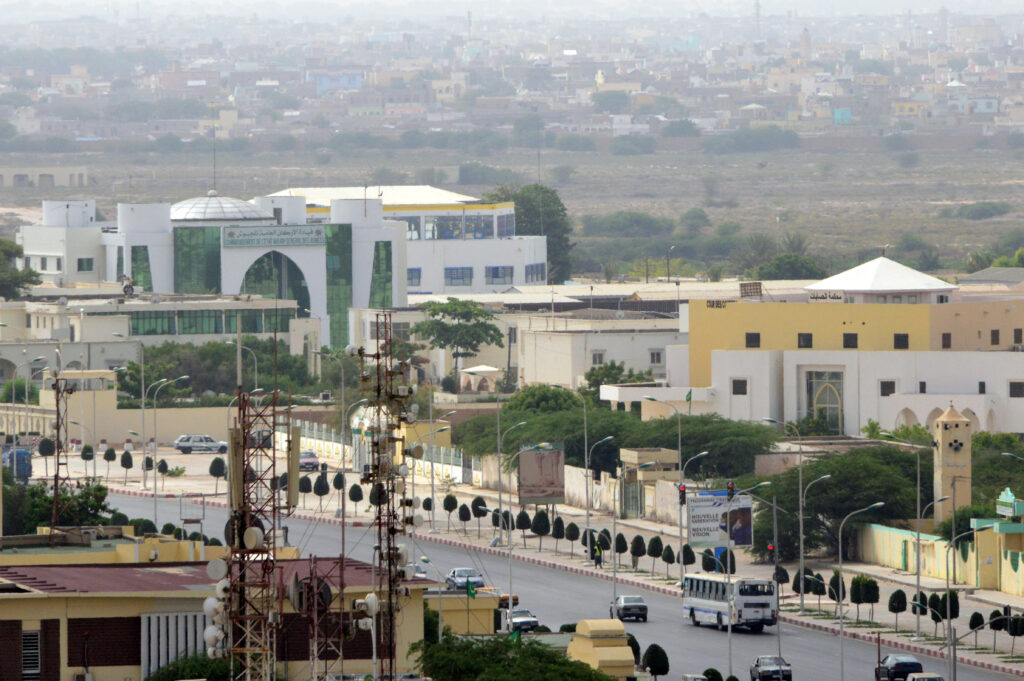Nouakchott develops a street addressing system to improve the everyday life of citizens
This article is a collaboration between the Journalism and Media Lab (Jamlab), ASToN and Civic Tech Innovation Network (CTIN).

Nouakchott, the capital of Mauritania, does not have a standardised street addressing system. The city’s streets and boulevards do not have official names and inhabitants must use known landmarks and more recently GPS to get around.
The city wants to set up a modern street addressing system, integrating a new approach, based on new technologies and citizen engagement. To do so, Nouakchott joined a network of 11 African cities developing leading and innovative digital projects to transform in an inclusive and sustainable way: the African Smart Town Network (ASToN). This project aims to assist cities in their digital transition, through peer learning and sharing, over a period of 3 years, between 2019 and 2022.
“This system must be widely adopted by the population to have a strong impact on the city’s development,” according to the Mauritanian team. Nouakchott’s participation in ASToN is important as the city’s decision-makers benefit from technical and methodological support to implement important initiatives for the citizens and for urban planning. The new system offers many opportunities and benefits. “It will be a better use of local financial resources and it will improve the quality of urban services,” said the local project team.
Profile of Nouakchott
With a population of 1.3 million, Nouakchott is home to more than a third of Mauritanians. The population density remains low, at 6,383 inhabitants per square kilometre. Nouakchott spreads throughout its outskirts and informal settlements and the city is divided into nine urban districts which are part of the Nouakchott region.
Between 60% to 80% of the population have access to smartphones and access to the internet is rapidly growing. Between 40% and 60% of the city’s population is connected to an internet network, mostly 4G.
The local context is marked by two aspects: firstly, the urban and historical constraints linked to the city’s development and secondly, the opportunities linked to the rapid access to digital tools to develop local solutions for citizens.
The lack of a street addressing system is an issue for local leaders. “This lack of a collective understanding of addresses has a heavy impact on daily activities,” according to the local team. “A street addressing system in all the districts of Nouakchott was introduced in 2001 but was faced with the challenges of illegal dwellings.” The new project was launched in 2020, based on these constraints and foreseeable opportunities.
The objectives of the project
“A smart city effectively uses technology to meet the needs of its citizens,” this is the ambition of Nouakchott within the ASToN project, as summarised by Abdel Malick Fatimetou, president of the Nouakchott region.
In concrete terms, the project aims to lay the foundations of a smart city through this new street addressing system. This system will always be accessible on smartphones. There are two objectives, as Aminata Lo, director of Urban Planning and Development for the Nouakchott region and coordinator of the ASToN project, explained: “The first objective is to create a system that is functional and accessible to all, to the entire population, even illiterate people”.
The illiteracy rate in Mauritania is 46.5%, so access is a key component of the success of this project. The second objective is to raise awareness on the social and economic importance of the project, to gain the support of the population.
“This is an essential factor for the successful implementation of this system,” according to Lo. She is optimistic: “The use of smartphones in the city is rapidly growing and the pandemic allowed local delivery start-ups to emerge, and they rely on the location-based system. For us, a digital street addressing application has every chance of being effective”.
During its implementation, many difficulties related to the existing legal system came to the fore. “Until recently, the power to decide on street names belonged to the municipalities. Now it is the responsibility of the region. But since then, we have not had the legal capability to do it and the law lacks clarity,” said Lo.
The application
Currently the Nouakchott project is in its third phase. “We are currently experimenting with a new street addressing system in a specific area of the city centre to test the application,” explained Lo. This phase is decisive for the rest of the project. A technical partner should come on board to advise the local team and produce a prototype that will be duplicated in the city’s other municipalities.
Two initial phases were conducted with the main objective of creating local interest for the project. Thus, several consultation workshops on the challenges of the digital transition were held with the committees of the districts of the region (e.g. Sebkha, Toujounine, Dar Naim, Riyadh and Arafat) between November 2020 and March 2021.
In April 2021, the project organised a workshop on the development of an action plan to make Nouakchott a smart city. During the meeting, participants, representing the different sectors, identified the activities to be undertaken for the implementation of a strategy and a vision of the Nouakchott region for the digital transition of the city.
Written by Salaheddine Lemaizi.


